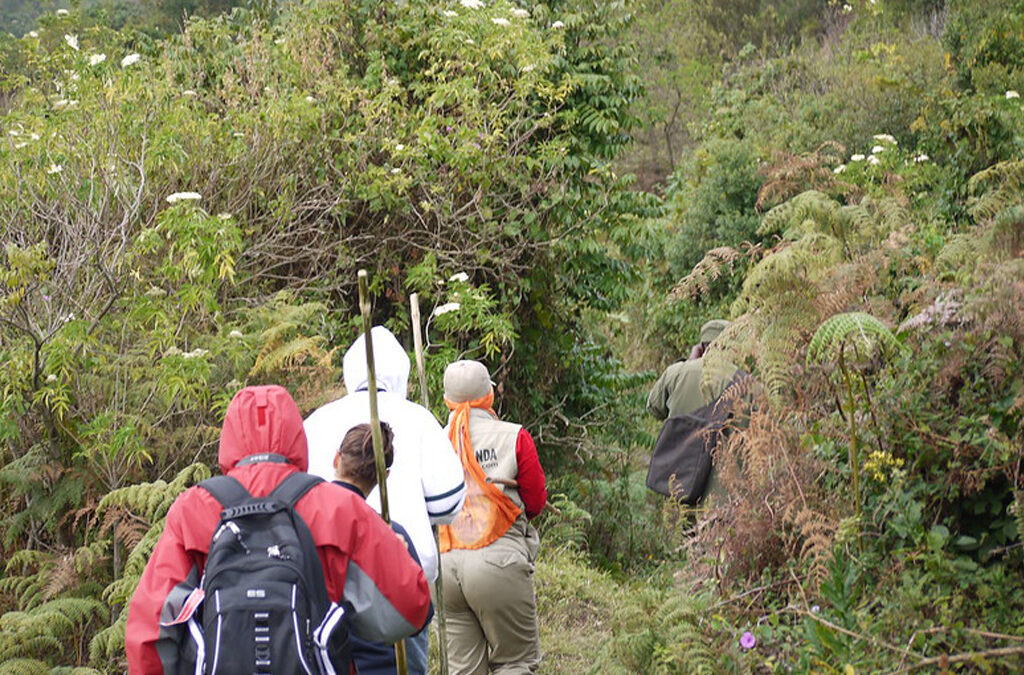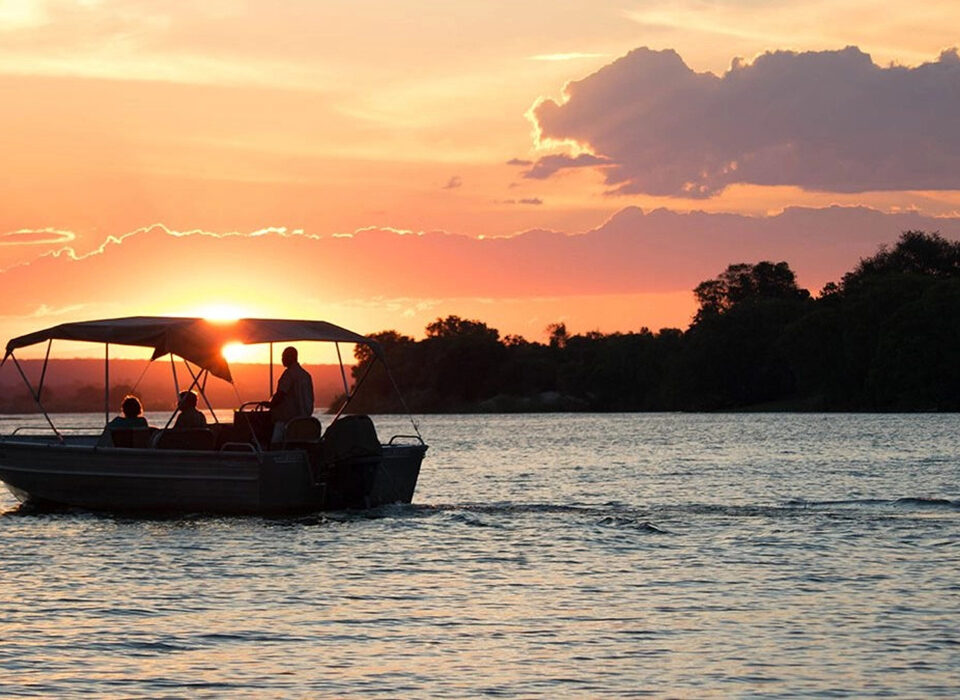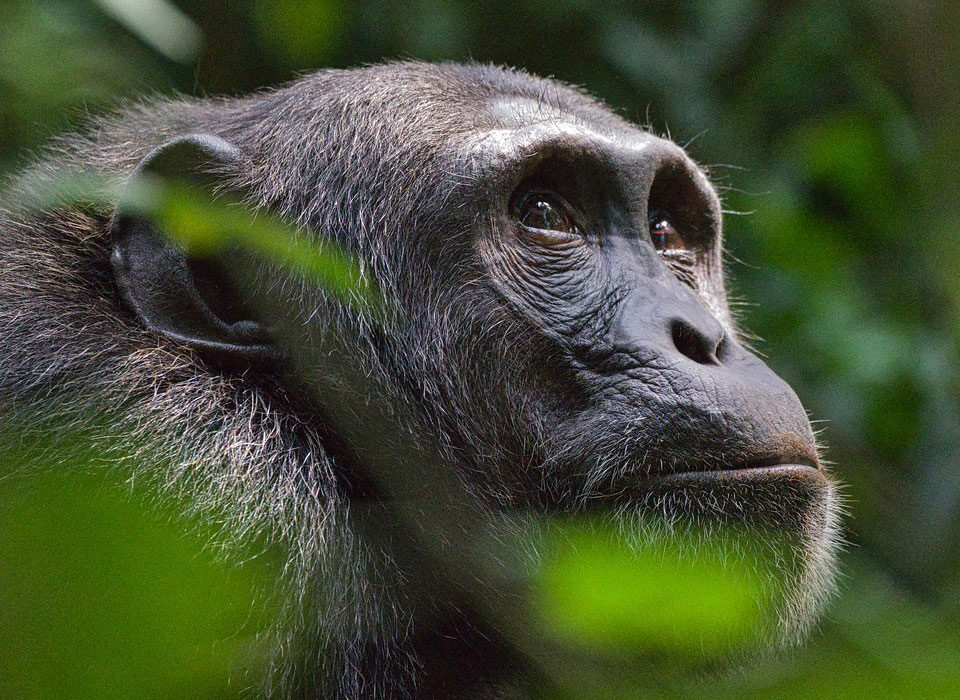
Cultural Activities in the Surroundings of Kibale National Park
September 22, 2025
Discover Uganda’s Ultimate River Nile Safari Experience
September 23, 2025How to Have a Sustainable Hiking Trip in Uganda

Sustainable tourism plays a vital role in protecting local communities, their cultures, and the environment. By following sustainable principles, travelers can reduce the negative impact of human activities on nature and preserve Uganda’s treasured landscapes and wildlife for future generations.
If you are planning a hiking or gorilla trekking trip in Uganda, you can make a difference by practicing sustainability in several simple but impactful ways. Below are key tips to help you enjoy your adventure responsibly.
Follow the Instructions of Your Guide
Your guide knows the terrain, the forest, and the behavior of the wildlife you will encounter. Listening carefully to their instructions ensures both your safety and the safety of the gorillas. Staying close to your guide also deepens your understanding of the environment, helping you appreciate the beauty of Uganda’s rich biodiversity.
Trekking to see gorillas can be physically demanding. The trails are often steep, muddy, and challenging, especially during certain seasons. In addition, the forests are dense, and the higher altitudes may require time to adjust your breathing. Preparation is therefore essential. By planning for the weather and terrain in advance, you minimize the risk of needing extra resources and make your hike more sustainable.
Respect Plants and Wildlife
Before you begin your trek, a park warden will brief you on the rules. These guidelines exist to protect visitors, staff, wildlife, and the environment. One of the most important rules is respecting the space of the gorillas. Approaching them without invitation can trigger defensive behavior, particularly from the dominant silverback. If a gorilla moves toward you, stay calm, lower your gaze, and follow your guide’s instructions.
Always remember that you are entering the gorillas’ natural home. Observing their unique social bonds is a privilege, but it requires distance for everyone’s safety. Similarly, avoid picking vegetation, as this leads to habitat degradation. Instead, capture memories through photographs, ensuring that your camera flash is switched off to avoid disturbing the animals.
Dispose of Waste Properly
Hiking in Uganda’s forests offers an incredible connection with nature, but it also comes with the responsibility of leaving no trace behind. Carrying a reusable water bottle is one of the simplest ways to reduce waste. Plastic bottles are harmful to the environment, and their production contributes to pollution. If you do bring one, pack it out and dispose of it responsibly at the end of your trip.
Careful planning also helps reduce unnecessary waste. Estimate the amount of snacks and water you will need before heading out, and carry only what is essential. Any wrappers, food remains, or other trash should be packed up and taken back with you.
Nature does not provide restrooms, so if you must relieve yourself, bury human waste at least 30 centimeters deep. This prevents contamination of water sources and reduces the risk of transmitting diseases to gorillas and other forest animals.
Stay Home If You Feel Sick
If you feel unwell, it is important to postpone your gorilla trekking plans. Gorillas share much of their genetic makeup with humans but have weaker immune systems. A common cold or flu in humans can become life-threatening for gorillas.
Even when you are healthy, wearing a facemask during close encounters with gorillas helps protect both them and fellow trekkers. In this way, you safeguard the wellbeing of the species while ensuring a responsible and sustainable visit.
Support Local Communities and Respect Their Cultures
Another key aspect of sustainable hiking is supporting the local people who live around conservation areas. Revenue from gorilla trekking permits contributes to community development, with a portion directly invested in infrastructure and alternative livelihoods. By choosing accommodation and services that empower local communities, you help improve living standards while encouraging conservation.
Researching the culture of the area before your visit also enhances your experience. Showing respect for cultural practices and traditions helps preserve the identity of local communities and ensures that your presence is both positive and meaningful.
Final Thoughts
A sustainable hiking trip in Uganda requires preparation, mindfulness, and respect. By following your guide, protecting wildlife, managing waste, staying home when sick, and supporting local communities, you play an important role in conservation. At the same time, you enrich your own experience by connecting more deeply with Uganda’s natural beauty and cultural heritage.
Travel responsibly, and your journey will not only leave lasting memories but also contribute to the preservation of Uganda’s unique treasures for generations to come.



